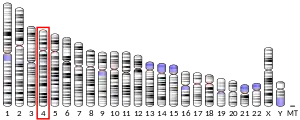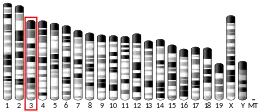| USP53 | |||||||||||||||||||||||||||||||||||||||||||||||||||
|---|---|---|---|---|---|---|---|---|---|---|---|---|---|---|---|---|---|---|---|---|---|---|---|---|---|---|---|---|---|---|---|---|---|---|---|---|---|---|---|---|---|---|---|---|---|---|---|---|---|---|---|
| Identifiers | |||||||||||||||||||||||||||||||||||||||||||||||||||
| Aliases | USP53, ubiquitin specific peptidase 53 | ||||||||||||||||||||||||||||||||||||||||||||||||||
| External IDs | OMIM: 617431 MGI: 2139607 HomoloGene: 34521 GeneCards: USP53 | ||||||||||||||||||||||||||||||||||||||||||||||||||
| |||||||||||||||||||||||||||||||||||||||||||||||||||
| |||||||||||||||||||||||||||||||||||||||||||||||||||
| |||||||||||||||||||||||||||||||||||||||||||||||||||
| |||||||||||||||||||||||||||||||||||||||||||||||||||
| |||||||||||||||||||||||||||||||||||||||||||||||||||
| Wikidata | |||||||||||||||||||||||||||||||||||||||||||||||||||
| |||||||||||||||||||||||||||||||||||||||||||||||||||
Inactive ubiquitin carboxyl-terminal hydrolase 53 is a protein that in humans is encoded by the USP53 gene.[5]
Although USP53 is classified as a deubiquitinating enzyme based on sequence homology to other proteases from this group, it lacks a functionally essential histidine in the catalytic domaine and activity assays suggest that USP53 is catalytically inactive. [6][7][8] Even though USP53 is devoid of catalytic activity, USP53 serves important physiological functions: mutations in Usp53 have been shown to cause progressive hearing loss in mice,[8] as well as late-onset hearing loss and cholestasis in humans.[9] USP53 localizes at cellular tight junctions and interacts with tight junction protein 2 (TJP2).[8] Mutations in TJP2 have also been shown to cause hearing impairments[10] and cholestasis.[11]
References
- 1 2 3 GRCh38: Ensembl release 89: ENSG00000145390 - Ensembl, May 2017
- 1 2 3 GRCm38: Ensembl release 89: ENSMUSG00000039701 - Ensembl, May 2017
- ↑ "Human PubMed Reference:". National Center for Biotechnology Information, U.S. National Library of Medicine.
- ↑ "Mouse PubMed Reference:". National Center for Biotechnology Information, U.S. National Library of Medicine.
- ↑ Nagase T, Kikuno R, Ishikawa KI, Hirosawa M, Ohara O (February 2000). "Prediction of the coding sequences of unidentified human genes. XVI. The complete sequences of 150 new cDNA clones from brain which code for large proteins in vitro". DNA Research. 7 (1): 65–73. doi:10.1093/dnares/7.1.65. PMID 10718198.
- ↑ Quesada V, Díaz-Perales A, Gutiérrez-Fernández A, Garabaya C, Cal S, López-Otín C (January 2004). "Cloning and enzymatic analysis of 22 novel human ubiquitin-specific proteases". Biochemical and Biophysical Research Communications. 314 (1): 54–62. doi:10.1016/j.bbrc.2003.12.050. PMID 14715245.
- ↑ "Entrez Gene: USP53 ubiquitin specific peptidase 53".
- 1 2 3 Kazmierczak M, Harris SL, Kazmierczak P, Shah P, Starovoytov V, Ohlemiller KK, Schwander M (November 2015). "Progressive Hearing Loss in Mice Carrying a Mutation in Usp53". The Journal of Neuroscience. 35 (47): 15582–98. doi:10.1523/JNEUROSCI.1965-15.2015. PMC 4659823. PMID 26609154.
- ↑ Maddirevula S, Alhebbi H, Alqahtani A, Algoufi T, Alsaif HS, Ibrahim N, Abdulwahab F, Barr M, Alzaidan H, Almehaideb A, AlSasi O, Alhashem A, Hussaini HA, Wali S, Alkuraya FS (September 2018). "Identification of novel loci for pediatric cholestatic liver disease defined by KIF12, PPM1F, USP53, LSR, and WDR83OS pathogenic variants". Genetics in Medicine. 21 (5): 1164–1172. doi:10.1038/s41436-018-0288-x. PMID 30250217. S2CID 52811525.
- ↑ Wang HY, Zhao YL, Liu Q, Yuan H, Gao Y, Lan L, Yu L, Wang DY, Guan J, Wang QJ (December 2015). "Identification of Two Disease-causing Genes TJP2 and GJB2 in a Chinese Family with Unconditional Autosomal Dominant Nonsyndromic Hereditary Hearing Impairment". Chinese Medical Journal. 128 (24): 3345–51. doi:10.4103/0366-6999.171440. PMC 4797511. PMID 26668150.
- ↑ Sambrotta M, Strautnieks S, Papouli E, Rushton P, Clark BE, Parry DA, Logan CV, Newbury LJ, Kamath BM, Ling S, Grammatikopoulos T, Wagner BE, Magee JC, Sokol RJ, Mieli-Vergani G, Smith JD, Johnson CA, McClean P, Simpson MA, Knisely AS, Bull LN, Thompson RJ (October 2014). "Mutations in TJP2 cause progressive cholestatic liver disease". Nature Genetics. 46 (4): 326–328. doi:10.1038/ng.2918. PMC 4061468. PMID 24614073.
Further reading
- Kimura K, Wakamatsu A, Suzuki Y, Ota T, Nishikawa T, Yamashita R, Yamamoto J, Sekine M, Tsuritani K, Wakaguri H, Ishii S, Sugiyama T, Saito K, Isono Y, Irie R, Kushida N, Yoneyama T, Otsuka R, Kanda K, Yokoi T, Kondo H, Wagatsuma M, Murakawa K, Ishida S, Ishibashi T, Takahashi-Fujii A, Tanase T, Nagai K, Kikuchi H, Nakai K, Isogai T, Sugano S (January 2006). "Diversification of transcriptional modulation: large-scale identification and characterization of putative alternative promoters of human genes". Genome Research. 16 (1): 55–65. doi:10.1101/gr.4039406. PMC 1356129. PMID 16344560.
- Rual JF, Venkatesan K, Hao T, Hirozane-Kishikawa T, Dricot A, Li N, Berriz GF, Gibbons FD, Dreze M, Ayivi-Guedehoussou N, Klitgord N, Simon C, Boxem M, Milstein S, Rosenberg J, Goldberg DS, Zhang LV, Wong SL, Franklin G, Li S, Albala JS, Lim J, Fraughton C, Llamosas E, Cevik S, Bex C, Lamesch P, Sikorski RS, Vandenhaute J, Zoghbi HY, Smolyar A, Bosak S, Sequerra R, Doucette-Stamm L, Cusick ME, Hill DE, Roth FP, Vidal M (October 2005). "Towards a proteome-scale map of the human protein-protein interaction network". Nature. 437 (7062): 1173–8. Bibcode:2005Natur.437.1173R. doi:10.1038/nature04209. PMID 16189514. S2CID 4427026.
- Ozyildirim AM, Wistow GJ, Gao J, Wang J, Dickinson DP, Frierson HF, Laurie GW (May 2005). "The lacrimal gland transcriptome is an unusually rich source of rare and poorly characterized gene transcripts". Investigative Ophthalmology & Visual Science. 46 (5): 1572–80. CiteSeerX 10.1.1.123.3574. doi:10.1167/iovs.04-1380. PMID 15851553.



